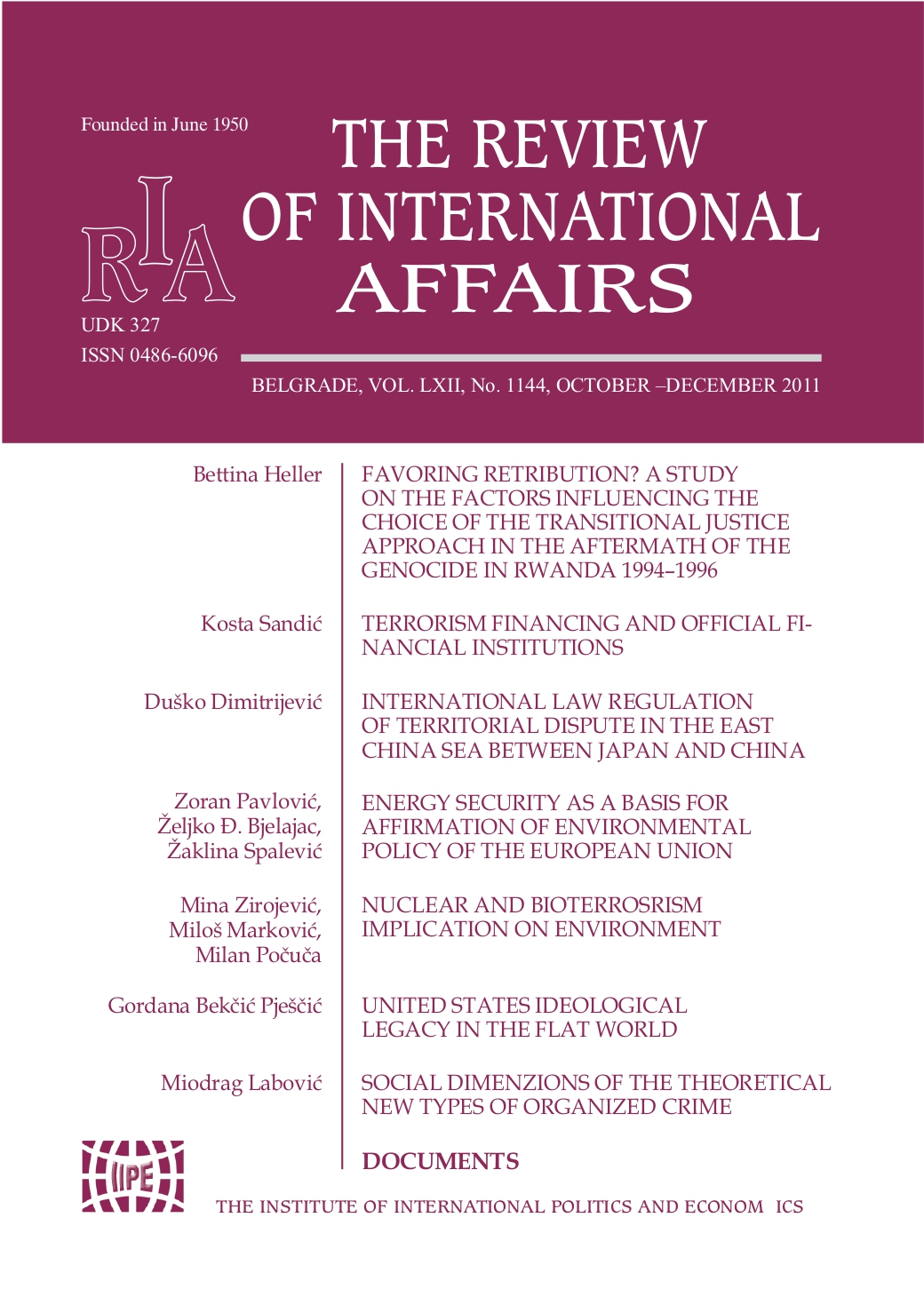Social Dimenzions of the Theoretical New Types of Organized Crime
Social Dimenzions of the Theoretical New Types of Organized Crime
Author(s): Miodrag LabovicSubject(s): Corruption - Transparency - Anti-Corruption
Published by: Институт за међународну политику и привреду
Keywords: institutional organized crime; corruption; government; independent agency
Summary/Abstract: The study takes a systemic and qualitative approach. The research is founded on long-term authors survey based on the statistical indications and 37 in-depth interviews with officials. The findings of this article are: Five types of organized crime were identified. Besides well-known types of organized crime, this study found two new types of organized crime: institutional and institutionalized organized crime. This new typology distinguishes from the previous typologies because criteria were taken are not only by organizational shapes, but also criteria such as: social connections, establishment of the organized crime in the state-political structures, a high rate of damage which has been made in the society. The key point of this research is founded on authors capability of abstract perception for resolving the social control of institutional organized crime. The statistical indications and data collection by the in-depth interviews are very important. However, original visions and new ideas of the authors for resolving the greatest problems in the society always has been a key factor of each relevant idea in the field of natural and social science. The practical implications of this article represent a useful guideline for governments to deal with institutional organized crime: foundation of optimal independent agency; new operational tactics and methods. Of course, this solution needs political will for appropriate legal changes. The scientific value and one of the main points of this study is finding solution for exceeding a high rate of institutional organized crime. For that purpose, this study found that the problem might be resolved if in the legal system will be foreseen foundation of optimal independent institution against institutional type of organized crime which is inseparably linked with high type of corruption. Optimal independent institutions mean independent from the government, but not from the wide social control. This solution is guided by the knowledge that all governments in the world has a huge power, but the government in the fragile societies has a quite huge concentration of power. The developed countries with traditional democracy, political culture and law awareness can be dealing with this problem. But in the transitional and undeveloped countries there is lack of such determinative factors, and the governments are really dominant source of institutional organized crime.
Journal: The Review of International Affairs
- Issue Year: LXII/2011
- Issue No: 1144
- Page Range: 127-146
- Page Count: 20
- Language: English

